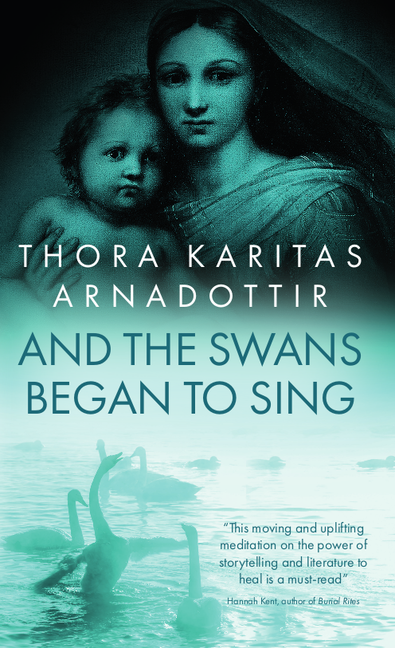And the Swans began to Sing by Thora Karitas Arnadottir
|
Gudbjorg Thorisdottir is born into a happy Icelandic family in 1952, the second child of loving parents and followed by three further siblings. They live upstairs in Mörk, a painted corrugated iron house in Reykjavik that has been in the family for generations. Their home is dominated by Gudgjorg’s grandfather, who lives in the ground-floor apartment with her aunt, uncle and cousins. Next door to Mörk is Little-Farm, the original old stone house with a coal cellar that Gudbjorg calls the Black Hole.
Gudbjorg is frightened of the Black Hole because horrible things happen down there. She lives with a secret that she can’t tell anybody, because Grandpa says that her family will lose their home if she does. Grandpa buys her presents and gives her caramels in a lovely white jug, so that makes him a good person, doesn’t it? On the wall above Grandpa’s bed is a black and white reproduction of a Madonna and Child that Gudbjorg likes to gaze upon, as it comforts her when Grandpa is making her feel bad. When she has grown into a teenager, and her family has moved away from Mörk, she realises that what has happened throughout her childhood is wrong. But still she takes the blame, and the shame of her experiences upon herself. After all, she seems to be the only girl in the family that this has happened to. Gudbjorg emerges into womanhood accompanied by the ghost of Grandpa’s abuse. Every time she wants to say anything, the ghost tightens its hand over her mouth and she remains dumb. It’s not until she takes a new job as Principle of a Reykjavik primary school that she accepts she needs to get help. It’s Gudbjorg’s daughter, Thora Karitas Arnadottir, who has taken her mother’s true story and brought it out into the light. Weaving together fact, fiction and poetic prose, her resulting testament bears all the magic of a fairy tale. A fairy tale incorporating endurance and survival, violence and tenderness and the heroism of a character who refuses to be crushed by the monster at the bottom of the Black Hole. Despite the darkness at the heart of Gudbjorg’s story, Thora Karitas has created a compelling narrative nonfiction account of life in Iceland from the time of her great-great-grandparents, right into the present. A story full of rural charm and ancestral memories, often encapsulated in the familial objects Gudbjorg has collected around her – each opening a window into the past and placing us in a particular moment – bringing back into sharp focus members of her family and ways of life that have long passed. | ||||
